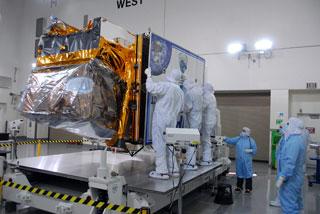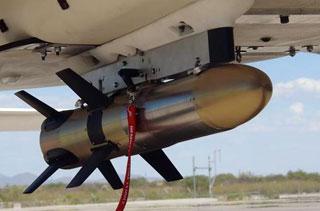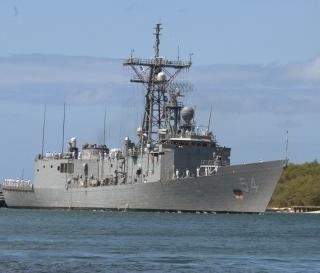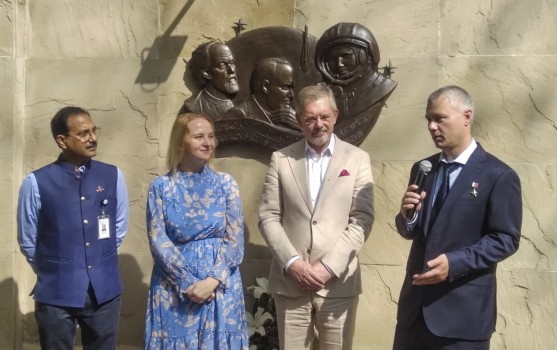
NPP is positioned on a test platform in a clean room inside the Astrotech Payload Processing Facility at Vandenberg Air Force Base in California. Photo: NASA/30th Communications Squadron, VAFB.
WASHINGTON (BNS): NASA is planning to launch the first Earth-observing satellite known as National Polar-orbiting Operational Environmental Satellite System Preparatory Project (NPP) on October 27.
The satellite will measure both global climate changes and key weather variables.
A Delta II rocket will carry NPP into an orbit 512 miles above Earth's surface. Roughly the size of a mini-van, the spacecraft will orbit Earth's poles about 14 times a day. It will transmit data once each orbit to a ground station in Svalbard, Norway, and to direct broadcast receivers around the world.
NPP is the first mission designed to collect critical data to improve weather forecasts in the short-term and increase our understanding of long-term climate change, according to a news report by NASA.
"NPP's observations of a wide range of interconnected Earth properties and processes will give us the big picture of how our planet changes," Jim Gleason, NPP project scientist at NASA's Goddard Space Flight Center, was quoted as saying in the report.
NPP's five science instruments, including four new state-of-the-art sensors, will provide scientists with data to extend more than 30 key long-term datasets.
These records, which range from the ozone layer and land cover to atmospheric temperatures and ice cover, are critical for global change science.
NPP serves as a bridge between NASA's Earth Observing System of satellites and the planned Joint Polar Satellite System (JPSS), which will collect climate and weather data. JPSS will be developed by NASA for the National Oceanic and Atmospheric Administration (NOAA).
NPP is set to launch from Space Launch Complex 2 at Vandenberg Air Force Base in California on Oct. 27.
NPP's Delta II launch vehicle also will carry several auxiliary payloads into orbit, which together comprise NASA's third Educational Launch of Nanosatellite, or ELaNa, mission. This mission will put five small research payloads, or CubeSats, into orbit: two for the University of Michigan; and one each for Auburn University, Montana State University and Utah State University, the report further added.
 Previous Article
Previous Article Next Article
Next Article










The Indian Air Force, in its flight trials evaluation report submitted before the Defence Ministry l..
view articleAn insight into the Medium Multi-Role Combat Aircraft competition...
view articleSky enthusiasts can now spot the International Space Station (ISS) commanded by Indian-American astr..
view article